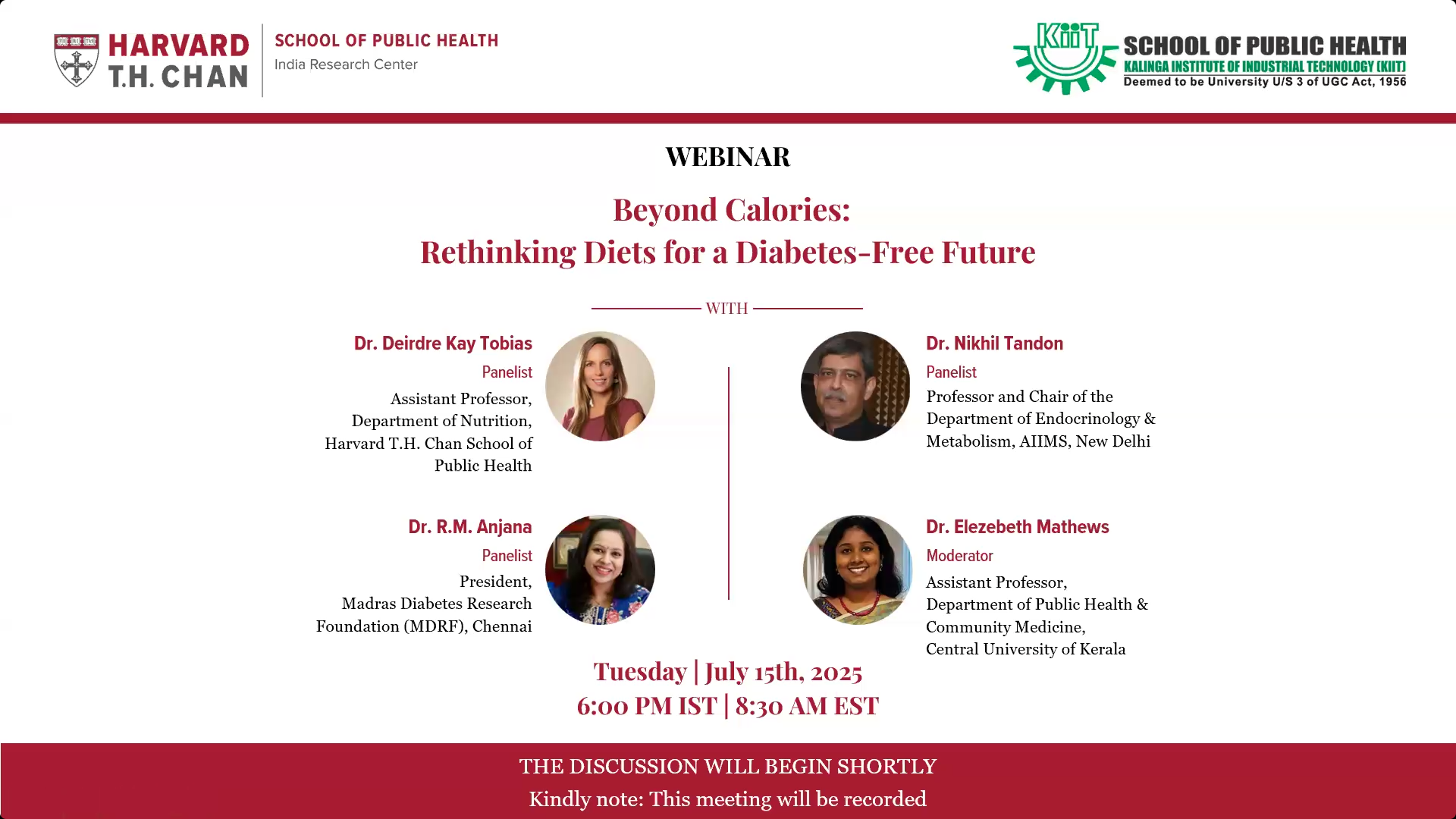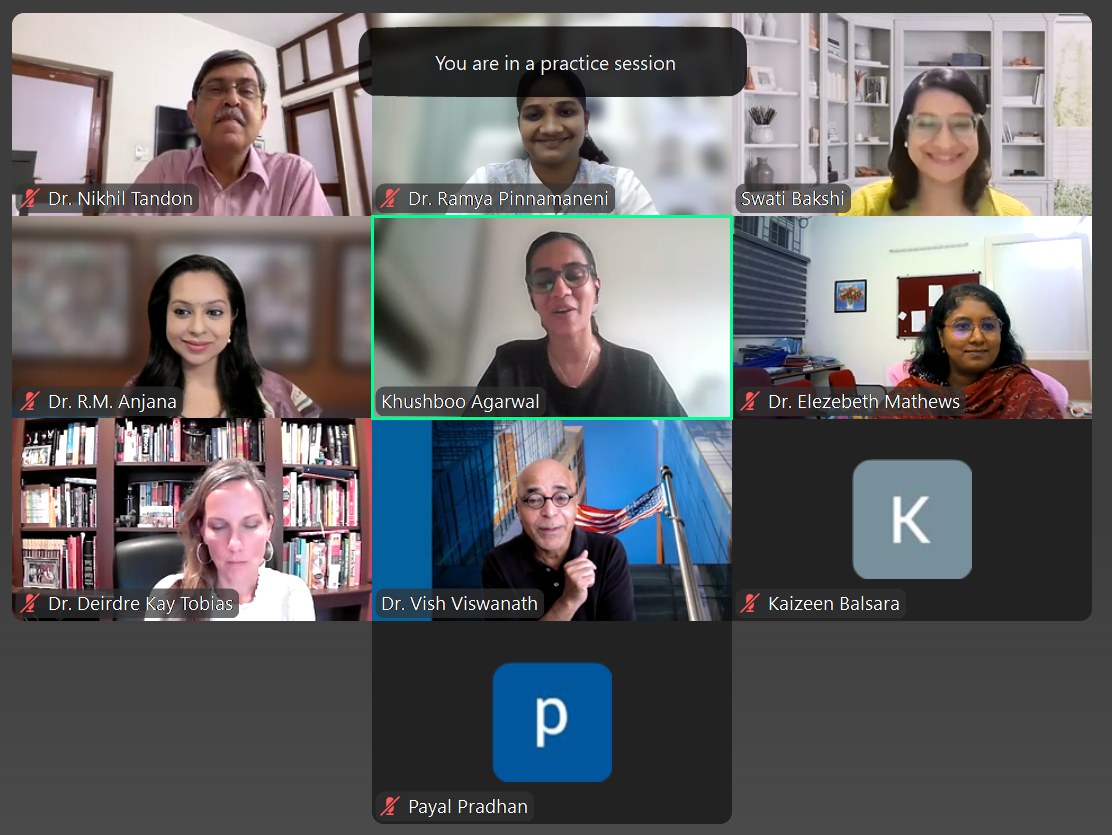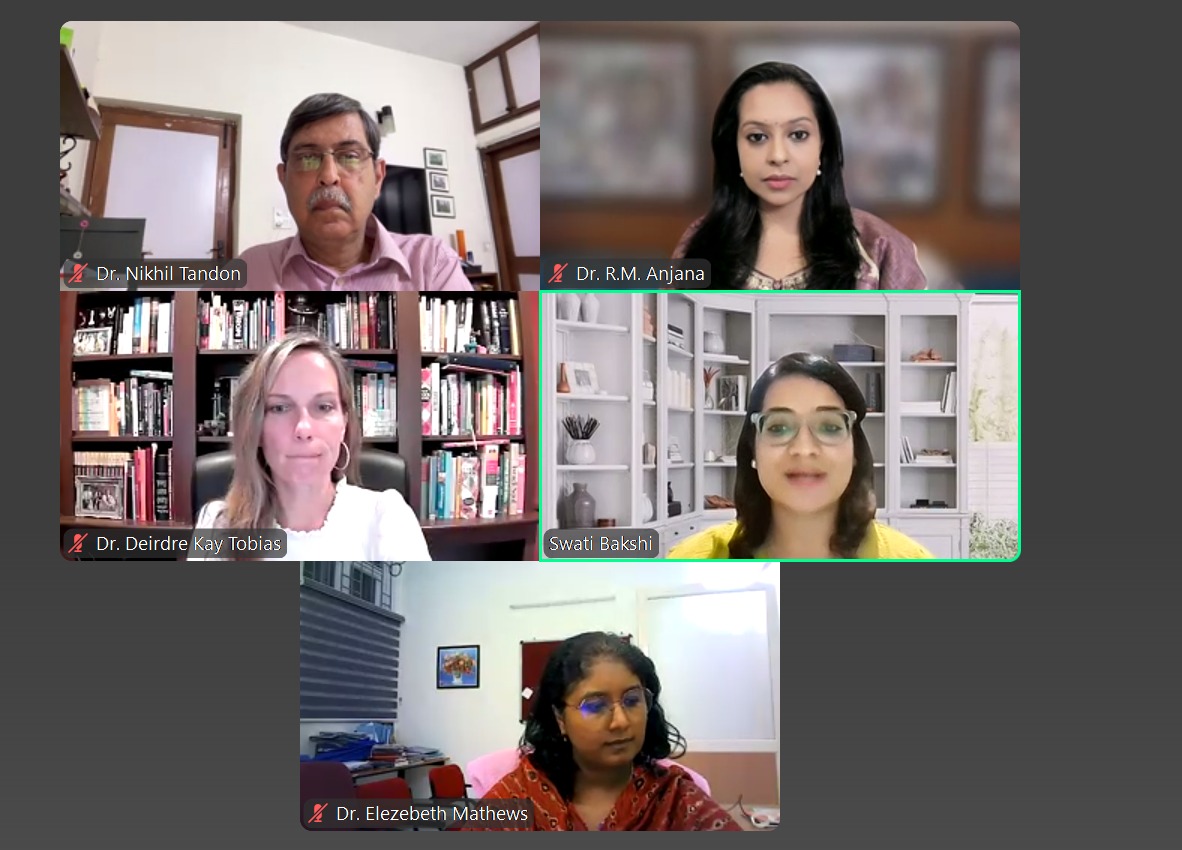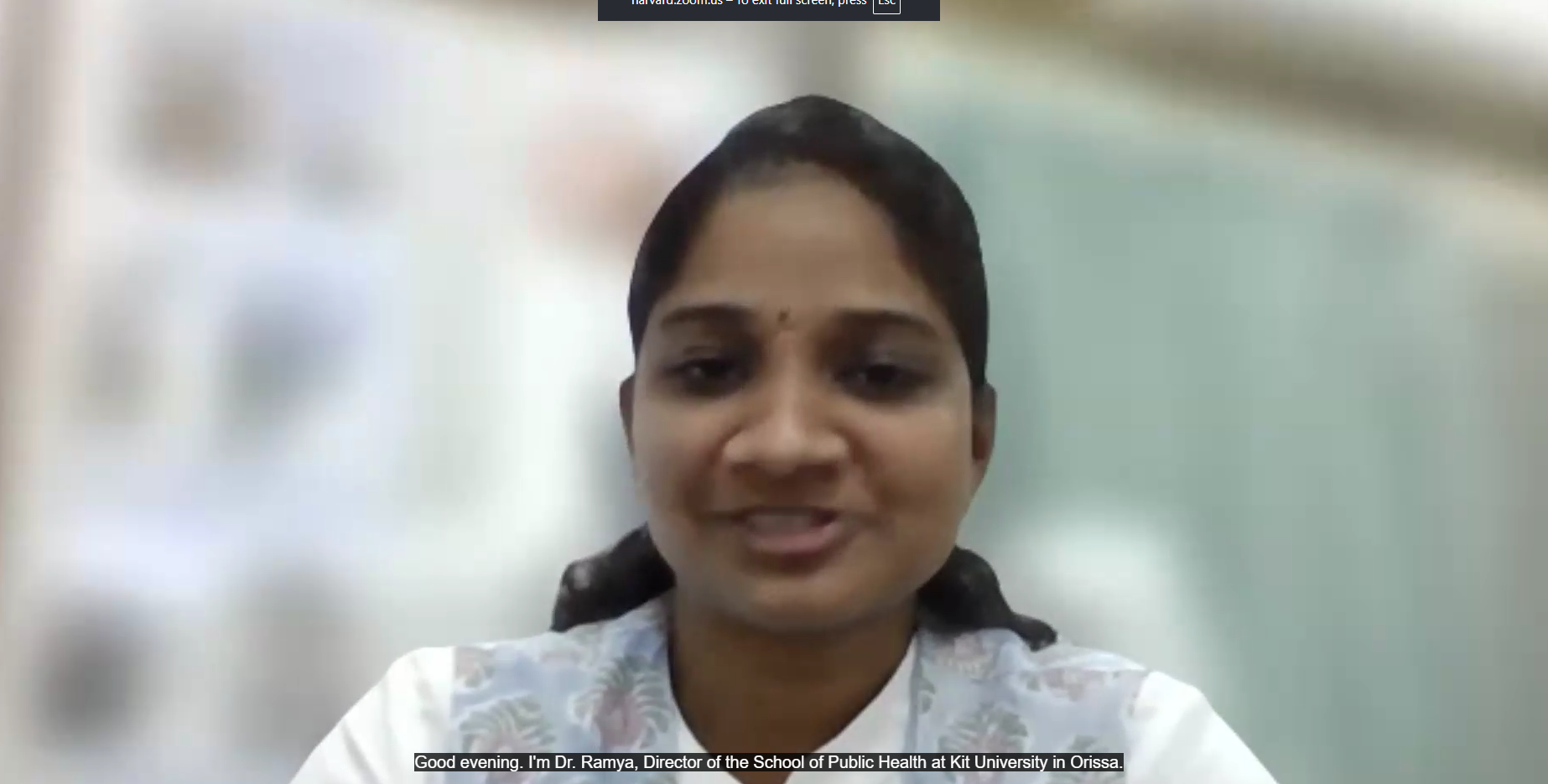Beyond Calories- Rethinking Diets for a Diabetes-Free Future
Hosted by the Harvard Chan India Research Center in collaboration with the School of Public Health, KIIT Deemed to be University
In an inspiring and deeply informative webinar held on July 15, 2025, leading experts from India and the United States came together to spotlight the urgent need for dietary transformation in the fight against diabetes. Titled “Beyond Calories: Rethinking Diets for a Diabetes-Free Future,” this was the second session in the Harvard Chan India Research Center’s series on “The Impact of Diets on Non-Communicable Diseases: Evidence and Next Steps.” The event drew approximately 150 participants from academia, healthcare, and policy sectors across multiple time zones.
Moderated by Dr. Elizabeth Matthews (Central University of Kerala and Harvard T.H. Chan School of Public Health), the webinar brought together an exceptional panel. Dr. Nikhil Tandon (AIIMS New Delhi) highlighted the alarming rise in diabetes prevalence and the critical need to instill healthy dietary patterns early in life. Dr. Deirdre Tobias (Harvard T.H Chan School of Public Health and Brigham & Women’s Hospital, Boston) shared insights from global studies, emphasizing dietary diversity as a protective factor and stressing the need to transform food environments to support population-level change. Dr. R.M. Anjana (Dr. Mohan’s Diabetes Specialties Centre, Chennai) grounded the discussion in Indian realities- rising rural diabetes, nutritional transition, and promising interventions such as shifting from refined to whole grains and integrating local staples.
Dr. Ramya Pinnamaneni, Director of the School of Public Health, KIIT-DU delivered the vote of thanks, emphasizing the life-course approach to diabetes prevention and the importance of collaboration, community engagement, and knowledge translation in shaping a healthier future.
From maternal nutrition and gestational diabetes to the role of AI, policy, and cultural context in shaping food choices, the session reinforced that diabetes prevention requires more than personal willpower- it demands systemic change, inter-sectoral policy efforts, and culturally sensitive public health strategies.
These webinars bridge science, policy, and practice to address non-communicable diseases.





